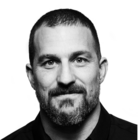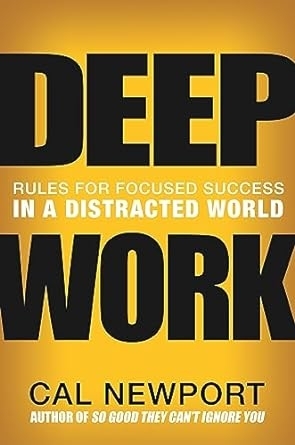
TOP 15 Huberman Andrew's Favorite Books
0
likes
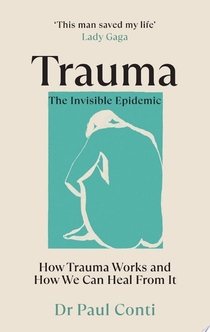
Trauma: The Invisible Epidemic
'I can say with certainty that this man saved my life. He made life worth living. But most importantly, he empowered me to find and reclaim myself again' Lady GagaDo the work to heal yourself and find a path through trauma.Trauma is everywhere and so many of us are silently affected by it. Stressful, challenging and frightening events can happen to anyone, at any age, leaving us feeling overwhelmed, anxious and exhausted. Left unchecked, difficult experiences can have a lasting psychological effect on our wellbeing.In Trauma: The Invisible Epidemic, leading psychiatrist Dr Paul Conti sets out a unique set of tools anyone can access to help recognise the signs of trauma, heal from past hurt and find the road to recovery.Drawing on the most recent scientific research, Dr Conti breaks down the topic into clear sections, looking at why trauma happens, how it manifests in the body and what we can do to move past it. In the book, you'll discover the three different types of trauma you might face, as well as practical exercises and solutions for getting to the root of the problem.This is an important, life-affirming book, one that invites you to empower yourself against trauma, own your life experiences and learn to thrive, not just survive, in the wake of life's difficulties.
See all
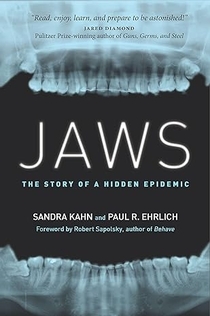
Jaws
There's a silent epidemic in western civilization, and it is right under our noses. Our jaws are getting smaller and our teeth crooked and crowded, creating not only aesthetic challenges but also difficulties with breathing. Modern orthodontics has persuaded us that braces and oral devices can correct these problems. While teeth can certainly be straightened, what about the underlying causes of this rapid shift in oral evolution and the health risks posed by obstructed airways? Sandra Kahn and Paul R. Ehrlich, a pioneering orthodontist and a world-renowned evolutionist, respectively, present the biological, dietary, and cultural changes that have driven us toward this major health challenge. They propose simple adjustments that can alleviate this developing crisis, as well as a major alternative to orthodontics that promises more significant long-term relief. Jaws will change your life. Every parent should read this book.
See all
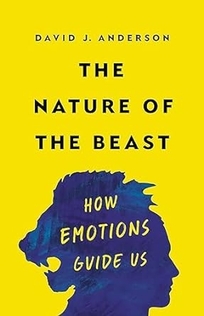
The Nature of the Beast
"When your dog growls and barks, you might assume that he's angry. But how do you know? You can't very well ask him. Even if you could, it's not at all clear that animals even have emotions like humans do. We still know very little about what emotions are and how they drive behavior. In fact, scientists haven't even been able to reach a consensus on how to study them. In The Nature of the Beast, neuroscientist David Anderson argues that the only way to solve this problem is to totally rethink our approach. One of the main sources of confusion is that we often fail to differentiate between feelings and emotions. Feelings are the subjective experiences of emotion, but they are not actually emotions. Anderson argues that emotions are internal states of the brain, similar to the state of being tired or thirsty, which you can observe in a brain's neural activity. They are like programs that our brain runs to address specific needs. Feelings are just one of many ways your brain tries to address a need. This neuroscientific approach offers us a much more precise and objective way of understanding emotions than older methods like self-report. And because it doesn't rely on language, you don't actually have to ask a dog if he's angry to find out. Anderson has been able to get some of the first reliable evidence about whether animals experience emotions like humans (spoiler alert: they do), and he is using those results to learn new things about how emotions drive our own actions. The Nature of the Beast takes readers into Anderson's groundbreaking studies of animal aggression and explores provocative new insights into how we choose between fight or flight responses, why isolation makes us more aggressive and social circles make us more peaceful, why sex and violence often bleed into one another, and whether there is in fact a connection between aggression and mental illness. The Nature of the Beast is How Emotions Are Made meets Mama's Last Hug: an exciting new framework for understanding how the brain regulates emotions, and why we have them at all"--
See all
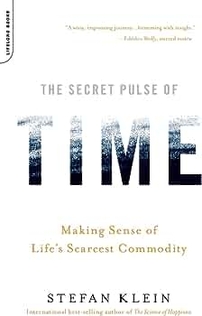
The Secret Pulse of Time
Popular science at its very best, The Secret Pulse of Time awakens us to and empowers us with the idea that time is far more at our disposal than we have previously realized. Award-winning journalist Stefan Klein— whose previous book, The Science of Happiness, is a longtime international bestseller—here provides what are essentially “operating instructions” for time. Through a combination of original investigation and reportage, personal revelation, and a commanding presentation of scientific research (among disciplines including brain physiology, social psychology, philosophy, and Einsteinian physics), The Secret Pulse of Time teaches readers not only to better master time but also to understand why they so often fail to do so.
See all
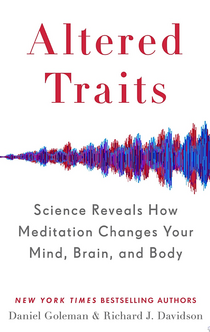
Altered Traits
Two New York Times–bestselling authors unveil new research showing what meditation can really do for the brain. In the last twenty years, meditation and mindfulness have gone from being kind of cool to becoming an omnipresent Band-Aid for fixing everything from your weight to your relationship to your achievement level. Unveiling here the kind of cutting-edge research that has made them giants in their fields, Daniel Goleman and Richard Davidson show us the truth about what meditation can really do for us, as well as exactly how to get the most out of it. Sweeping away common misconceptions and neuromythology to open readers’ eyes to the ways data has been distorted to sell mind-training methods, the authors demonstrate that beyond the pleasant states mental exercises can produce, the real payoffs are the lasting personality traits that can result. But short daily doses will not get us to the highest level of lasting positive change—even if we continue for years—without specific additions. More than sheer hours, we need smart practice, including crucial ingredients such as targeted feedback from a master teacher and a more spacious, less attached view of the self, all of which are missing in widespread versions of mind training. The authors also reveal the latest data from Davidson’s own lab that point to a new methodology for developing a broader array of mind-training methods with larger implications for how we can derive the greatest benefits from the practice. Exciting, compelling, and grounded in new research, this is one of those rare books that has the power to change us at the deepest level.
See all

The Circadian Code
Change your daily routine, transform your health.Circadian rhythms are biological processes or clocks that exist in each one of our cells. Programmed to turn genes on or off at different times of the day or night, they influence every aspect of our health from weight and energy levels through to resistance to disease and infection, and how well we sleep.Now, in The Circadian Code, this new science is revealed, showing that the timings of our day (when we eat, sleep, exercise, work) are more crucial than we ever thought before. And that, most importantly, if your daily schedule is out of sync with your circadian rhythms, you can fix it!Whether you are a shift worker, a frustrated dieter, someone suffering from sleep problems or chronic illness, whatever your health concern, The Circadian Code is the key to unlocking your health.
See all

Longitude
The dramatic human story of an epic scientific quest: the search for the solution of how to calculate longitude and the unlikely triumph of an English genius. With a Foreword by Neil Armstrong. ‘Sobel has done the impossible and made horology sexy – no mean feat’ New Scientist Anyone alive in the 18th century would have known that ‘the longitude problem’ was the thorniest scientific dilemma of the day – and had been for centuries. Lacking the ability to measure their longitude, sailors throughout the great ages of exploration had been literally lost at sea as soon as they lost sight of land. Thousands of lives, and the increasing fortunes of nations, hung on a resolution. The quest for a solution had occupied scientists and their patrons for the better part of two centuries when, in 1714, Parliament upped the ante by offering a king’s ransom (£20,000) to anyone whose method or device proved successful. Countless quacks weighed in with preposterous suggestions. The scientific establishment throughout Europe – from Galileo to Sir Isaac Newton – had mapped the heavens in both hemispheres in its certain pursuit of a celestial answer. In stark contrast, one man, John Harrison, dared to imagine a mechanical solution. Full of heroism and chicanery, brilliance and the absurd, LONGITUDE is also a fascinating brief history of astronomy, navigation and clockmaking. Note that it has not been possible to include the same picture content that appeared in the original print version.
See all

How Emotions Are Made
'How Emotions Are Made did what all great books do. It took a subject I thought I understood and turned my understanding upside down' - Malcolm Gladwell, author of The Tipping Point.When you feel anxious, angry, happy, or surprised, what's really going on inside of you? Many scientists believe that emotions come from a specific part of the brain, triggered by the world around us. The thrill of seeing an old friend, the fear of losing someone we love – each of these sensations seems to arise automatically and uncontrollably from within us, finding expression on our faces and in our behaviour, carrying us away with the experience.This understanding of emotion has been around since Plato. But what if it is wrong? In How Emotions Are Made, pioneering psychologist and neuroscientist Lisa Feldman Barrett draws on the latest scientific evidence to reveal that our common-sense ideas about emotions are dramatically, even dangerously, out of date – and that we have been paying the price. Emotions aren't universally pre-programmed in our brains and bodies; rather they are psychological experiences that each of us constructs based on our unique personal history, physiology and environment.This new view of emotions has serious implications: when judges issue lesser sentences for crimes of passion, when police officers fire at threatening suspects, or when doctors choose between one diagnosis and another, they're all, in some way, relying on the ancient assumption that emotions are hardwired into our brains and bodies. Revising that conception of emotion isn't just good science, Barrett shows; it's vital to our well-being and the health of society itself.
See all

Wherever You Go, There You Are
The international bestselling mindfulness guide.Mindfulness is considered the heart of Buddhist meditation. But its essence is universal and of deep practical benefit to everyone. In Wherever You Go, There You Are, Jon Kabat-Zinn maps out a simple path for cultivating mindfulness in our lives, and awakening us to the unique beauty and possibilities of each present moment.Since its first publication in 1994 (as Mindfulness Meditation for Beginners), this book has changed lives across the globe and is a perennial international bestseller.
See all
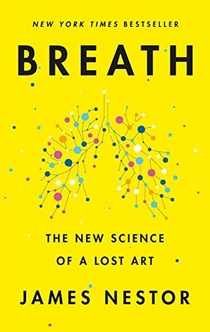
Breath
THE NEW YORK TIMES BESTSELLERA REVELATORY EXPLORATION OF A SUBJECT UNIVERSALLY KNOWNThere is nothing more essential to our health and wellbeing than breathing: take air in, let it out, repeat 25,000 times a day. Yet, as a species, humans have lost the ability to breathe correctly, with grave consequences. In Breath, journalist James Nestor travels the world to discover the hidden science behind ancient breathing practices to figure out what went wrong and how to fix it.Modern research is showing us that making even slight adjustments can:- jump-start athletic performance- rejuvenate internal organs- halt snoring, allergies, asthma and autoimmune disease, and even straighten scoliotic spinesNone of this should be possible, and yet it is. Drawing on thousands of years of ancient wisdom and cutting-edge studies in pulmonology, psychology, biochemistry and human physiology, Breath turns the conventional wisdom of what we thought we knew about our most basic biological function on its head.You will never breathe the same again._____________________________'Who would have thought something as simple as changing the way we breathe could be so revolutionary for our health, from snoring to allergies to immunity? James Nestor is the perfect guide to the pulmonary world and has written a fascinating book, full of dazzling revelations' Dr Rangan Chatterjee, author of Feel Better in Five'If you want to read a book about the power of the breath, this is it!' -- Patrick McKeown, author of The Oxygen Advantage'I would have thought that breathing was pretty simple and well understood. Then I read this book. Now I know it's a hugely complex and wondrous process which we need to understand much better. Fascinating and provocative stuff' -- Daniel M. Davis, author of The Beautiful Cure
See all

On the Move
Oliver Sacks war der berühmteste Neurologe der Welt. Mit seinen Fallgeschichten hat er uns einen neuen Blick auf Krankheiten und Abweichungen gelehrt: Was bei einem Patienten auf den ersten Blick als Störung erscheint, ermöglicht oft besondere Fähigkeiten der Wahrnehmung. Mit diesem Buch hat Sacks eine von fesselnder Energie getriebene Autobiographie vorgelegt. Ehrlich und anrührend beschreibt er die wichtigsten Stationen seines Lebens – das enge Großbritannien der Nachkriegszeit, das anarchische Kalifornien der frühen Sechziger, schließlich das ewig pulsierende New York. Ob er in der Forschung tätig ist oder in der klinischen Praxis, konstant bleiben die Begeisterung für die Arbeit mit den Patienten und das Schreiben darüber. Gerühmt für seine feinsinnigen Fallgeschichten, analysiert Sacks hier seinen eigenen Fall: Er erzählt von erfüllter und unerfüllter Liebe, der Beziehung zu seiner jüdischen Medizinerfamilie, zeitweiliger Drogensucht und exzessivem Bodybuilding und von unbändigen Glücksgefühlen auf den Road Trips durch die Weiten Nordamerikas. Die Lebensbilanz eines außergewöhnlichen Mediziners – und das Meisterwerk eines großartigen Erzählers.
See all

Finding Ultra, Revised and Updated Edition
An incredible but true account of achieving one of the most awe-inspiring midlife physical transformations everOn the night before he was to turn forty, Rich Roll experienced a chilling glimpse of his future. Nearly fifty pounds overweight and unable to climb the stairs without stopping, he could see where his current sedentary life was taking him—and he woke up. Plunging into a new routine that prioritized a plant-based lifestyle and daily training, Rich morphed—in a matter of mere months—from out of shape, mid-life couch potato to endurance machine. Finding Ultra recounts Rich’s remarkable journey to the starting line of the elite Ultraman competition, which pits the world’s fittest humans in a 320-mile ordeal of swimming, biking, and running. And following that test, Rich conquered an even greater one: the EPIC5—five Ironman-distance triathlons, each on a different Hawaiian island, all completed in less than a week. In the years since Finding Ultra was published, Rich has become one of the world’s most recognized advocates of plant-based living. In this newly revised and updated edition, he shares the practices, tools, and techniques he uses for optimal performance, longevity, and wellness, including diet and nutrition protocols. Rich reflects on the steps he took to shift his mindset and leverage deep reservoirs of untapped potential to achieve success beyond his wildest imagination, urging each of us to embark on our own journey of self-discovery.
See all

The Road to Character
#1 NEW YORK TIMES BESTSELLER • David Brooks challenges us to rebalance the scales between the focus on external success—“résumé virtues”—and our core principles. NAMED ONE OF THE BEST BOOKS OF THE YEAR BY THE ECONOMIST With the wisdom, humor, curiosity, and sharp insights that have brought millions of readers to his New York Times column and his previous bestsellers, David Brooks has consistently illuminated our daily lives in surprising and original ways. In The Social Animal, he explored the neuroscience of human connection and how we can flourish together. Now, in The Road to Character, he focuses on the deeper values that should inform our lives. Looking to some of the world’s greatest thinkers and inspiring leaders, Brooks explores how, through internal struggle and a sense of their own limitations, they have built a strong inner character. Labor activist Frances Perkins understood the need to suppress parts of herself so that she could be an instrument in a larger cause. Dwight Eisenhower organized his life not around impulsive self-expression but considered self-restraint. Dorothy Day, a devout Catholic convert and champion of the poor, learned as a young woman the vocabulary of simplicity and surrender. Civil rights pioneers A. Philip Randolph and Bayard Rustin learned reticence and the logic of self-discipline, the need to distrust oneself even while waging a noble crusade. Blending psychology, politics, spirituality, and confessional, The Road to Character provides an opportunity for us to rethink our priorities, and strive to build rich inner lives marked by humility and moral depth. “Joy,” David Brooks writes, “is a byproduct experienced by people who are aiming for something else. But it comes.”Praise for The Road to Character“A hyper-readable, lucid, often richly detailed human story.”—The New York Times Book Review “This profound and eloquent book is written with moral urgency and philosophical elegance.”—Andrew Solomon, author of Far from the Tree and The Noonday Demon “A powerful, haunting book that works its way beneath your skin.”—The Guardian“Original and eye-opening . . . Brooks is a normative version of Malcolm Gladwell, culling from a wide array of scientists and thinkers to weave an idea bigger than the sum of its parts.”—USA Today
See all

The 4-Hour Body
Do you want to lose fat, double testosterone, get the perfect posterior or give your partner a fifteen-minute female orgasm? Whatever your physical goal, The 4-Hour Body eclipses every other health manual by sharing the best kept secrets in the latest science and research to provide new strategies for redesigning the human body. And you don't need to exhaust yourself. International bestselling author, Timothy Ferriss, helps you reach your true genetic potential in 3-6 months with a commitment of less than four hours per week. You can pick and choose from a menu of options, from simple to extreme, for dramatic body changes. Based on over 15 years of research and with personal stories, amazing before and after photos, recipes and sidebars, The 4-Hour Body will give unbelievable results and change the way you look forever.
See all
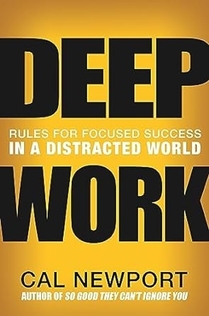
Deep Work
AN AMAZON BEST BOOK OF 2O16 PICK IN BUSINESS & LEADERSHIPWALL STREET JOURNAL BUSINESS BESTSELLER A BUSINESS BOOK OF THE WEEK AT 800-CEO-READMaster one of our economy’s most rare skills and achieve groundbreaking results with this “exciting” book (Daniel H. Pink) from an “exceptional” author (New York Times Book Review). Deep work is the ability to focus without distraction on a cognitively demanding task. It's a skill that allows you to quickly master complicated information and produce better results in less time. Deep Work will make you better at what you do and provide the sense of true fulfillment that comes from craftsmanship. In short, deep work is like a super power in our increasingly competitive twenty-first century economy. And yet, most people have lost the ability to go deep-spending their days instead in a frantic blur of e-mail and social media, not even realizing there's a better way. In Deep Work, author and professor Cal Newport flips the narrative on impact in a connected age. Instead of arguing distraction is bad, he instead celebrates the power of its opposite. Dividing this book into two parts, he first makes the case that in almost any profession, cultivating a deep work ethic will produce massive benefits. He then presents a rigorous training regimen, presented as a series of four "rules," for transforming your mind and habits to support this skill. 1. Work Deeply 2. Embrace Boredom 3. Quit Social Media 4. Drain the Shallows A mix of cultural criticism and actionable advice, Deep Work takes the reader on a journey through memorable stories-from Carl Jung building a stone tower in the woods to focus his mind, to a social media pioneer buying a round-trip business class ticket to Tokyo to write a book free from distraction in the air-and no-nonsense advice, such as the claim that most serious professionals should quit social media and that you should practice being bored. Deep Work is an indispensable guide to anyone seeking focused success in a distracted world.
See all
